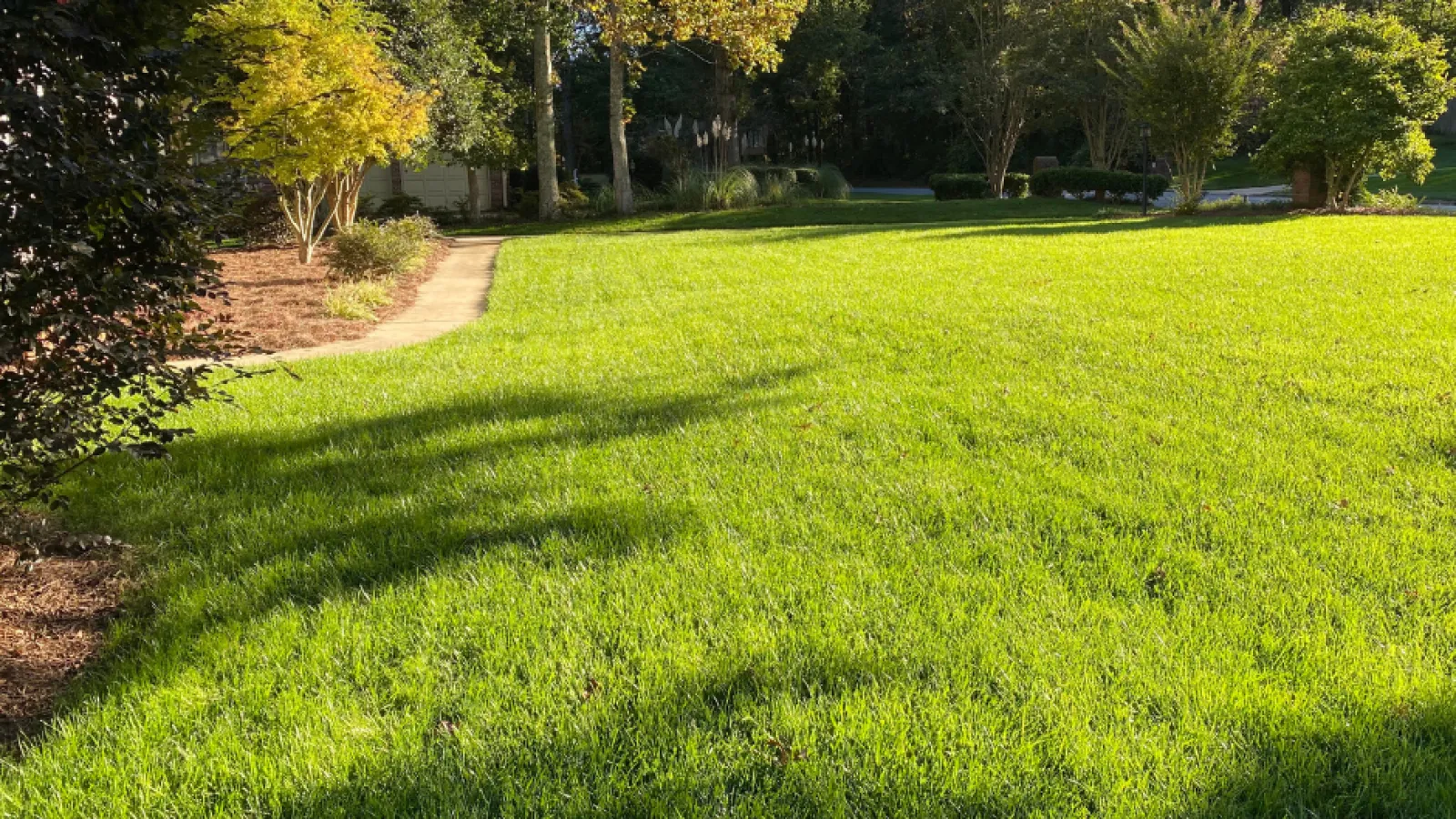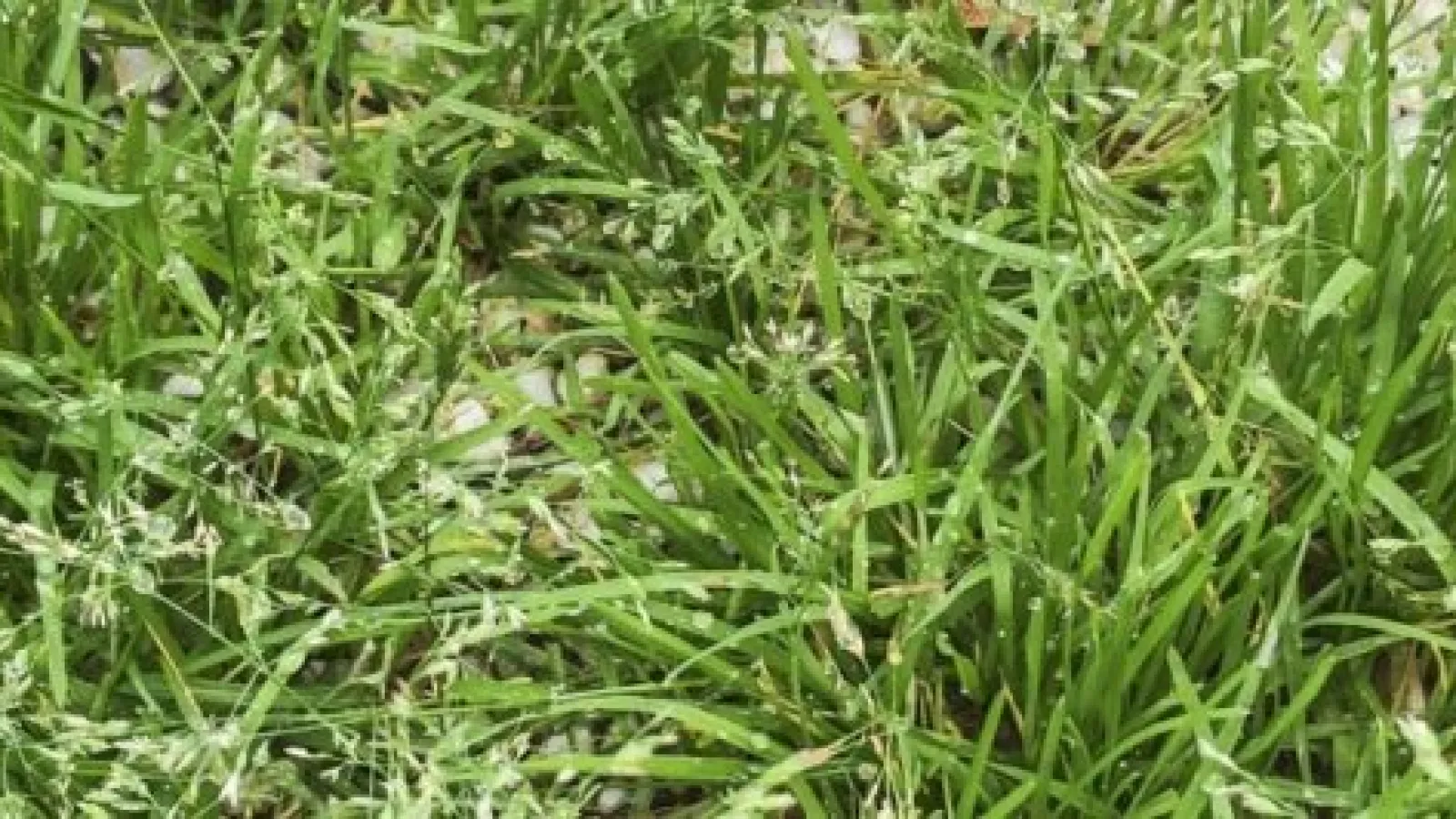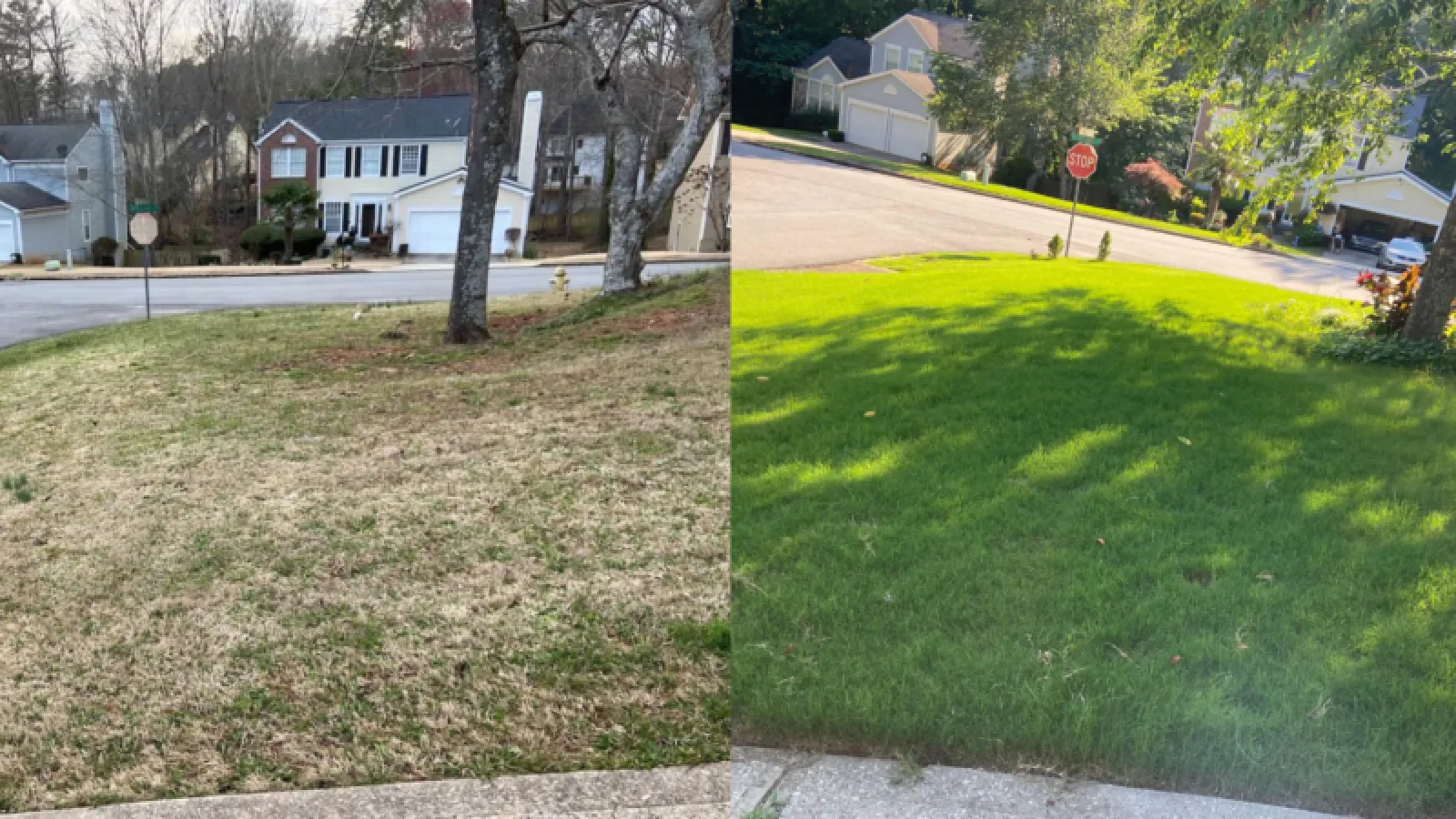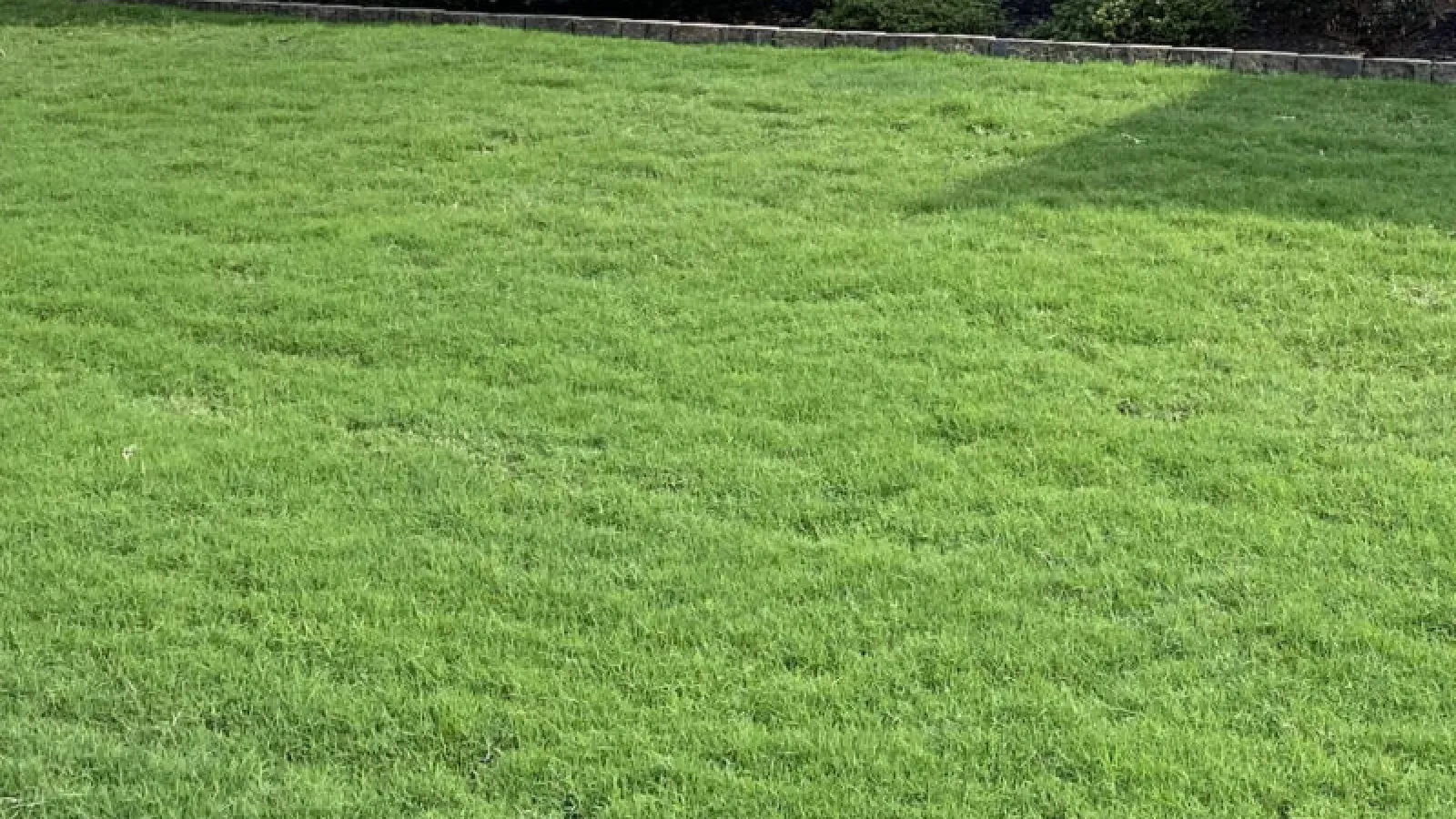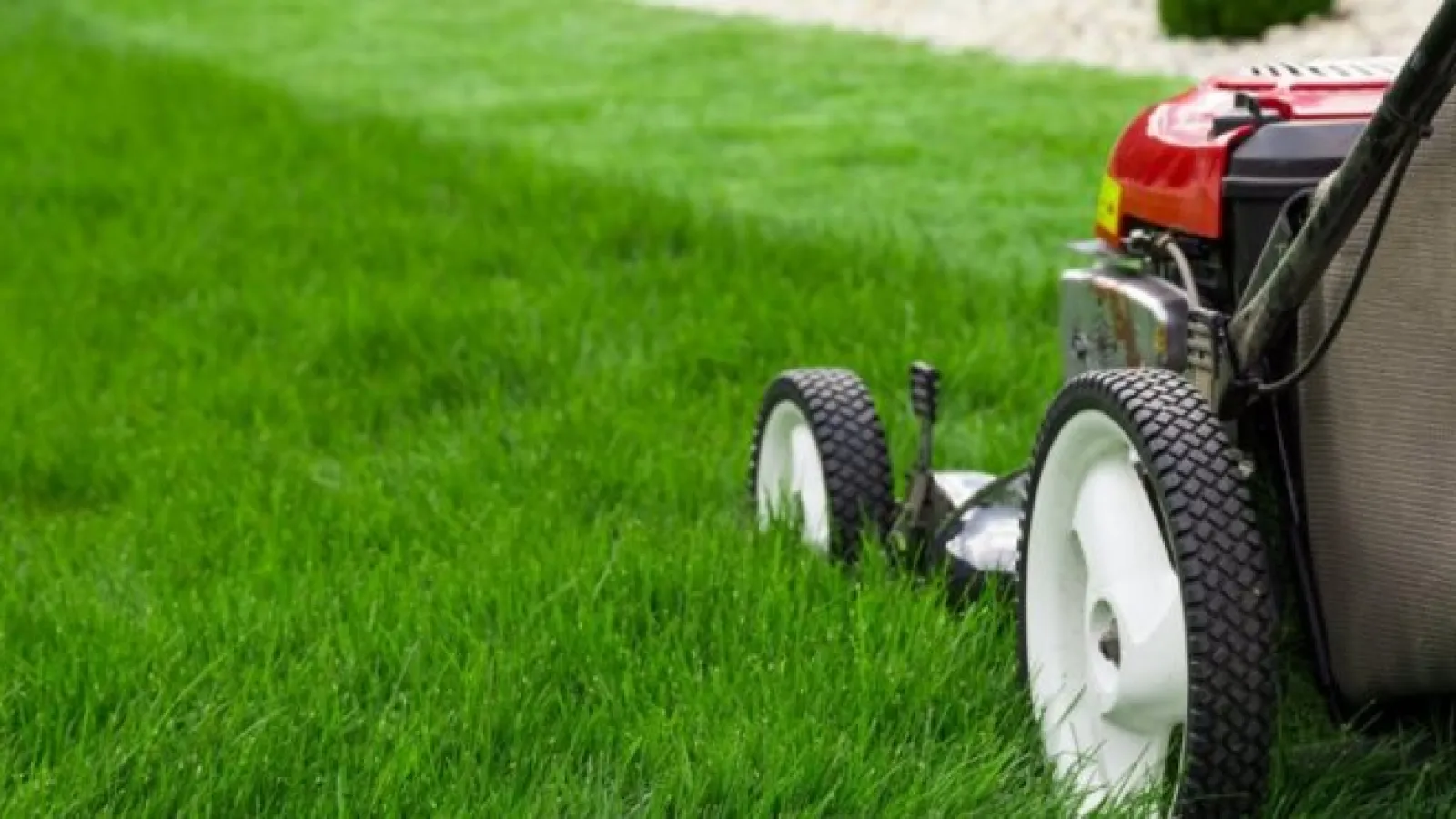Caring For Your
Bermuda Grass Lawn
Helpful tips and information about your Bermuda lawn
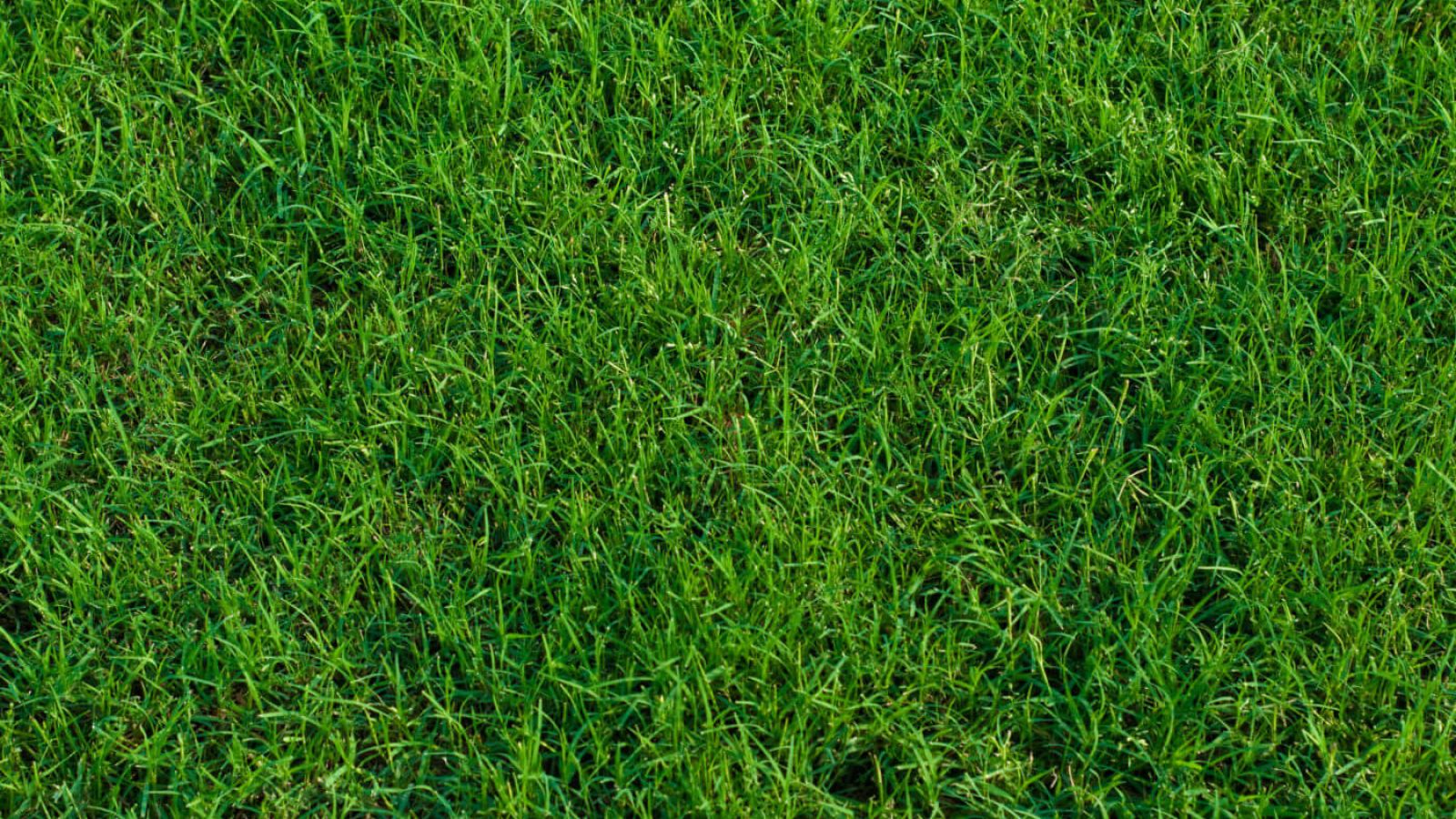
Bermuda Grass
Settlers from Africa and India brought Bermuda grass to North America over a century and a half ago. But the very fine turf-type varieties found on most properties today are very different from the original species. It has been cultivated to produce the fine, dense grass we have today, capable of withstanding very low mowing heights.
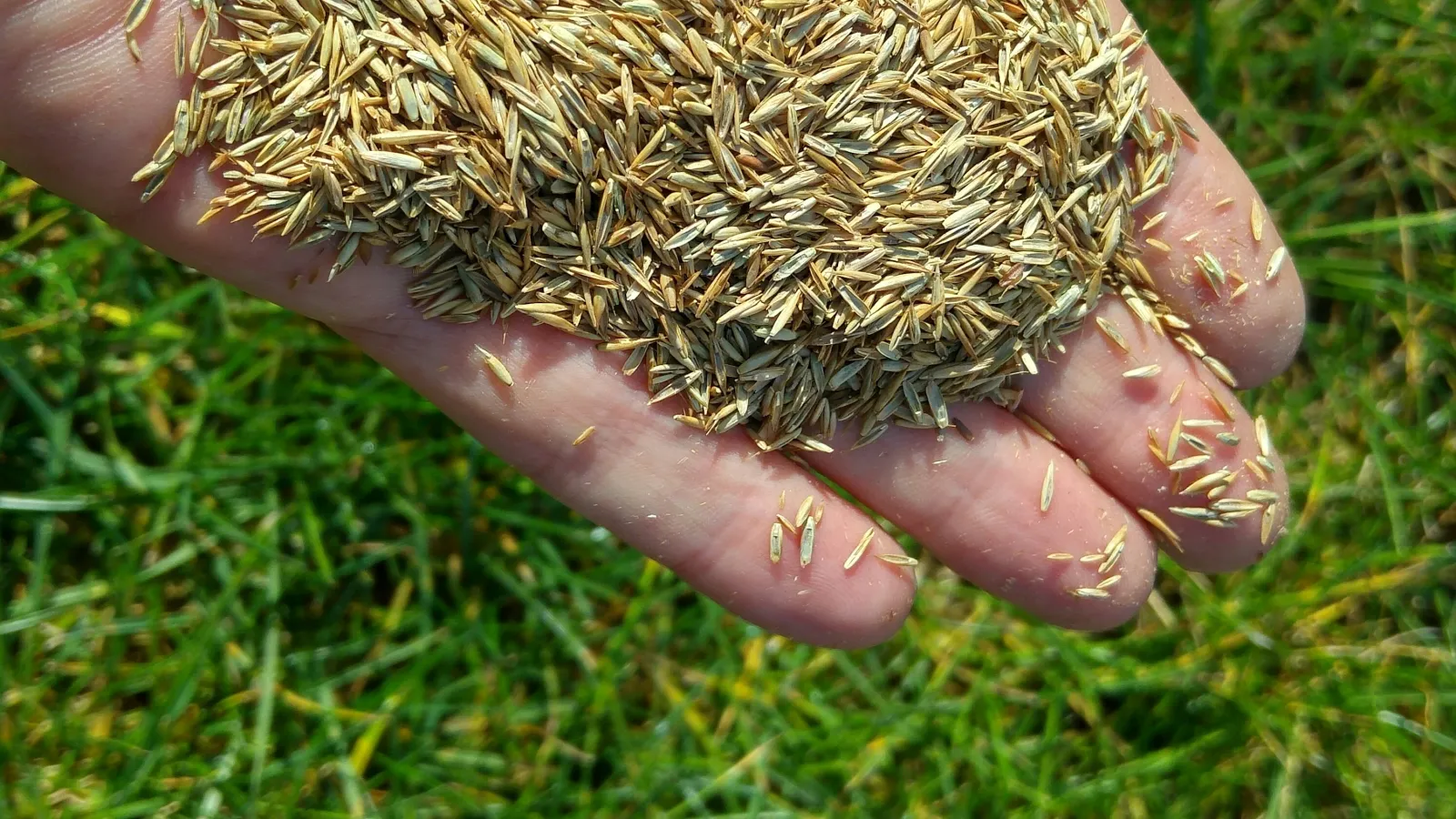
Should I Seed My Bermuda Lawn?
We are often asked by new customers with thin or bare spots if they should seed their Bermuda lawns. The answer is no! The Bermuda grass grown from seed simply will not match the cultivated variety in your yard. In conclusion, given the right amounts of sunlight, water, nutrients, and care, because Bermuda spreads aggressively, those spots should fill in on their own.

Sunlight and Bermuda Grass
Sunlight is one of the most important factors in achieving a healthy Bermuda lawn. Bermuda is a warm-season grass, and as such, it requires plenty of sunlight. We recommended at least 7 hours a day of full sunlight. Even shaded areas behind trees or between houses that would otherwise be considered full sun can contribute to thinning of Bermuda grass. Recent varieties of Bermuda grass have been developed that require less sunlight. Unfortunately, some have interpreted this as "shade-tolerant" Bermuda grass. Beware! These varieties still require at least 4-5 hours of direct sunlight. Above all, when it comes to Bermuda grass, there is no such thing as too much sun.
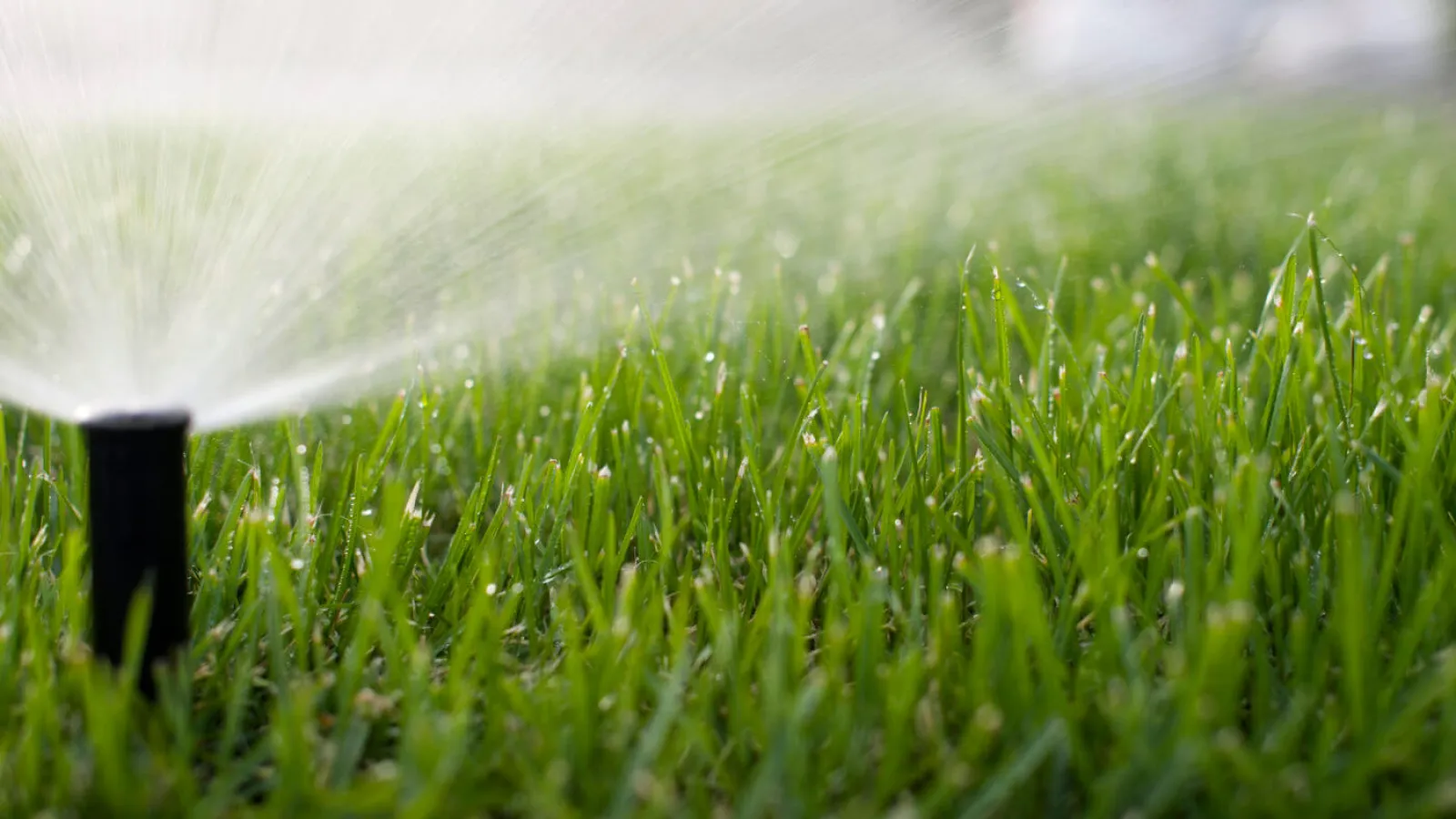
Watering
When out of dormancy (when green and actively growing), Bermuda typically requires 1 inch of water per week. During very hot weather, Bermuda may require as much as 2 inches per week. But in times of extreme drought, Bermuda grass may go dormant. Think of dormancy as a type of hibernation. This is a survival mechanism. People often think their grass has died. When ample rainfall or water returns, Bermuda will green up and resume growth, provided it is in the warmer months.
Furthermore, it is important to keep the soil well-drained. Standing water is harmful to your Bermuda grass. You should address drainage issues to alleviate standing water. Core aeration can also help with compacted soil.
The "Tuna Can Trick"
Remember, infrequent, deep watering is better than shallow, frequent watering. A good way to determine an inch of water is the "tuna-can trick." Place an empty tuna can in an irrigation or sprinkler zone. Next, turn the water on and take note of how long it takes for the can to fill up. You now know how long you need to run the irrigation to get an inch of water. The time of day you water or irrigate your lawn is important! Water your lawn early in the morning rather than in the evening. Evening irrigation increases the chances of fungal diseases.
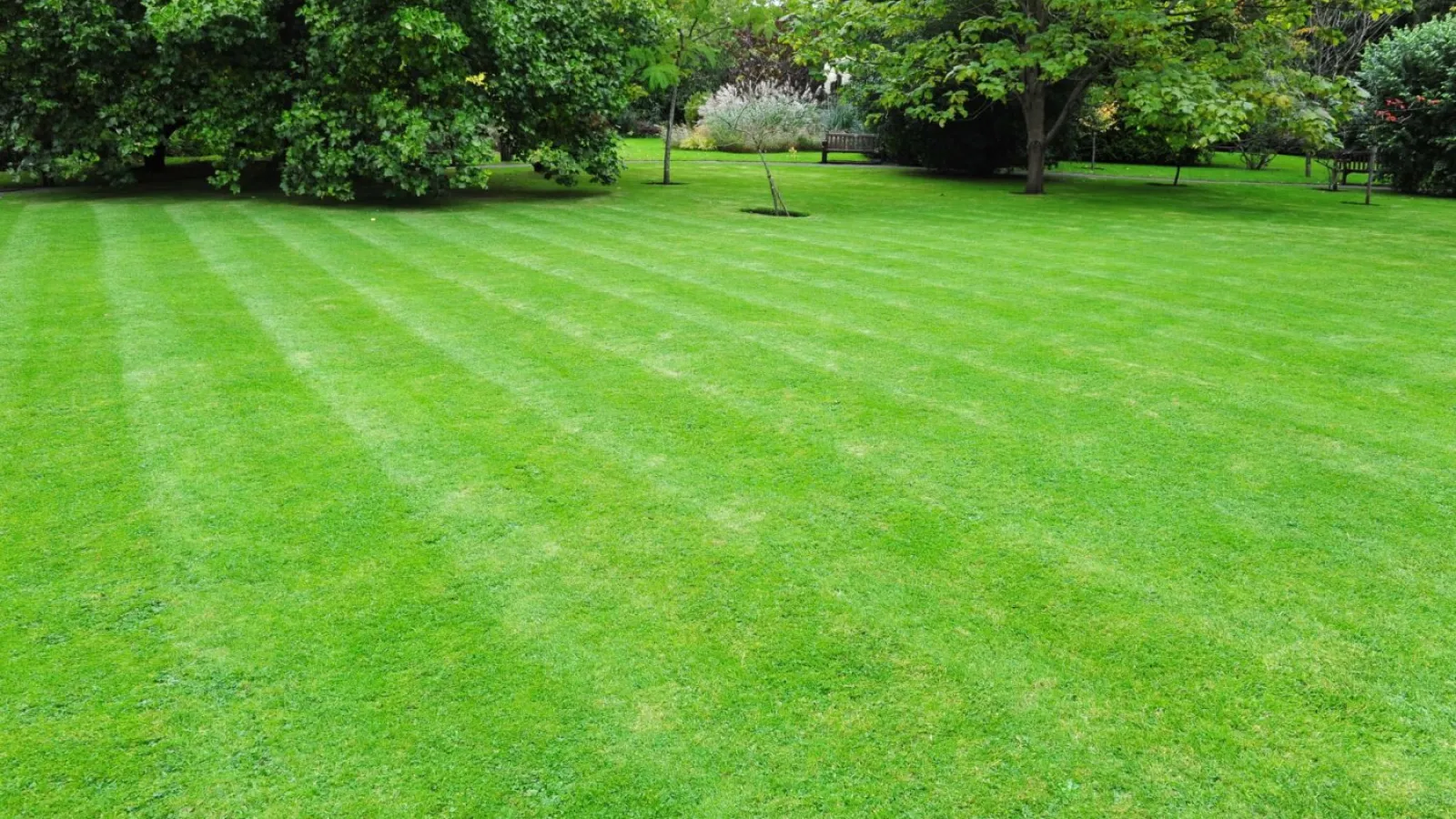
Mowing
We recommend maintaining your Bermuda lawn at a height between .75" and 1.5". You should cut the grass frequently enough so no more than 1/3 of the grass blade is removed in one cutting. Always use a sharp blade. A dull blade tears the grass blade rather than making a clean cut. This not only makes the tips appear brown, but provides an entry way for pathogens. In the spring time, typically in late March in north Georgia, set your mower on its lowest setting. This is called "scalping" the lawn. Scalping will make it easier to maintain the proper height throughout the growing season and help your lawn "green up" faster. Unless the lawn has been neglected and the Bermuda grass is tall, you should avoid bagging clippings. Following the above instructions and allowing the clippings to return to the lawn returns nitrogen to your lawn.
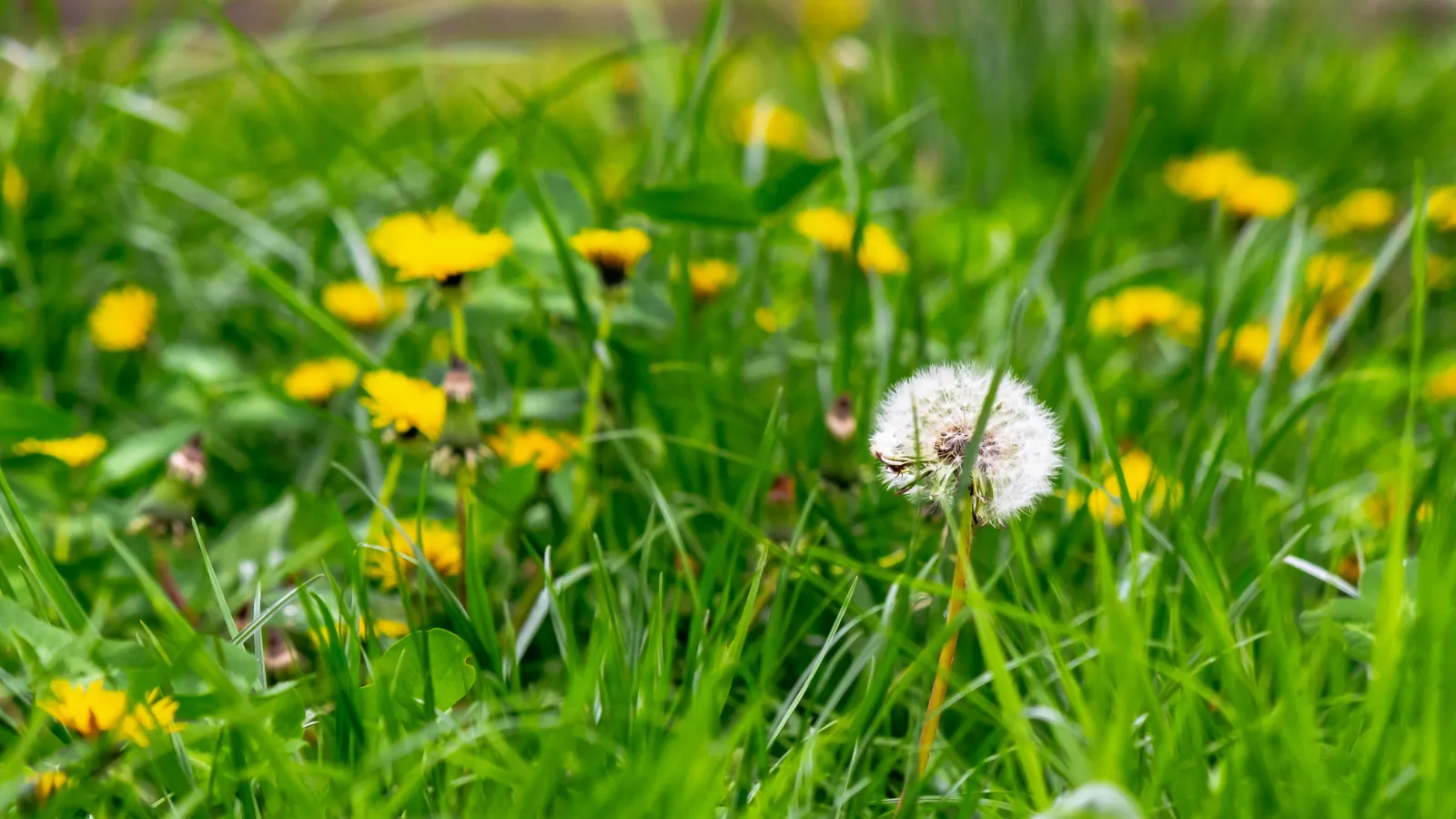
Weed Control
The Southeast United States is blessed to have two seasons of weeds: summer weeds and winters weeds. Most people are more familiar with summer weeds such as crabgrass and dandelions; however, winter weeds such as Annual blue grass and Henbit can be just as bothersome. Crabgrass and Annual bluegrass (Poa annua) are particularly troublesome because they can displace the Bermuda grass, stealing valuable nutrients from your lawn. Once established, these weeds can be difficult to eradicate. That's why Turf Masters provides four pre-emergent (weed prevention) application rounds per year-two in the spring and two in the fall. These pre-emergents prevent weed seeds from rooting in the soil and are effective on a broad variety of weeds.
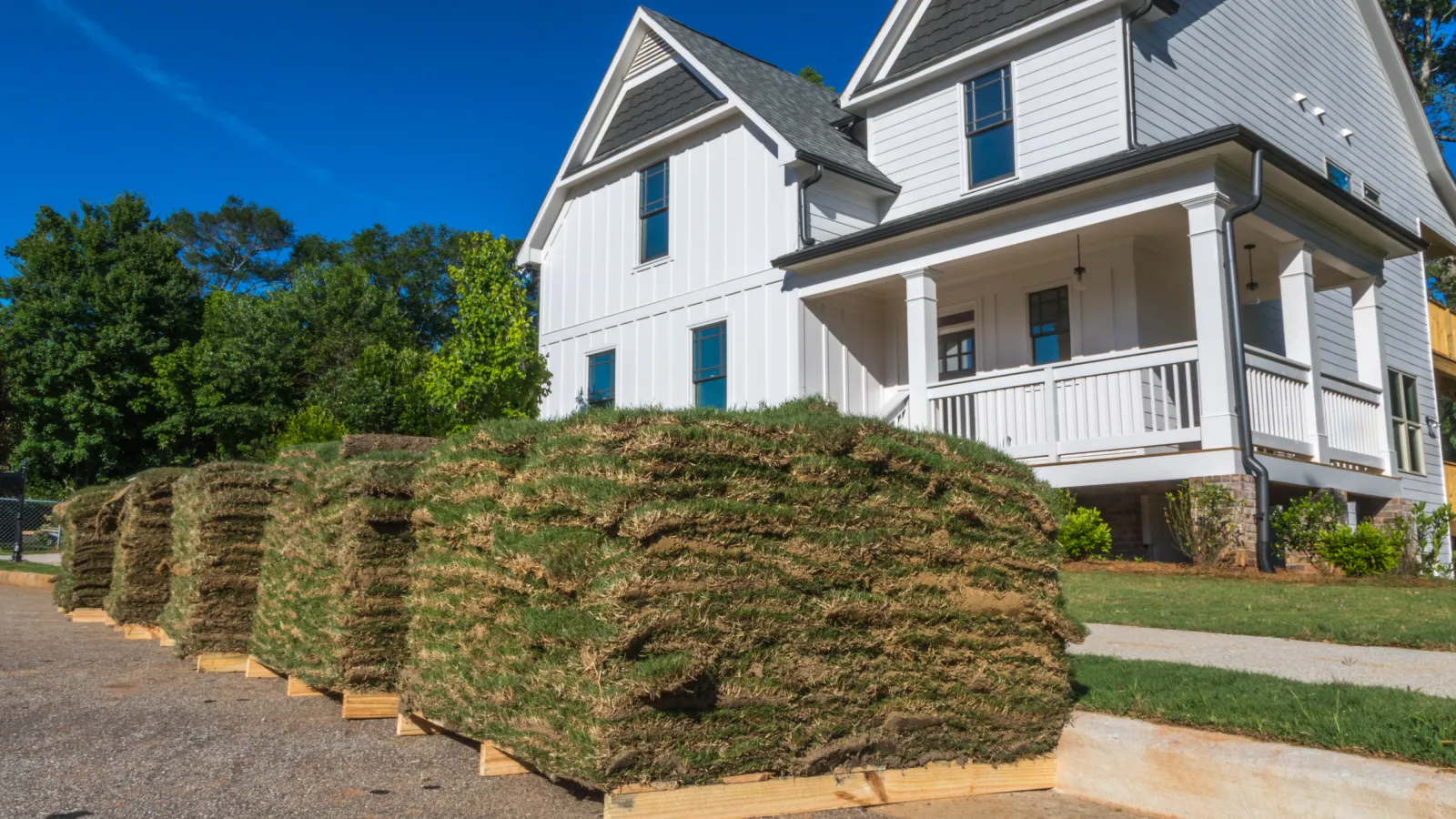
Newly Sodded Lawns
Newly sodded lawns require a special type of pre-emergent that prevents weed seed from sending up new shoots. While this type of pre-emergent does not prevent as many types of weeds, it is very good at preventing grassy weeds and will not harm new sod. This product is not available without a special license. Should you decide to try to do your own weed prevention, always read and follow the label instructions. We can't prevent all weeds. So when one of our Route Managers treats your lawn he or she will spot treat any existing weeds.
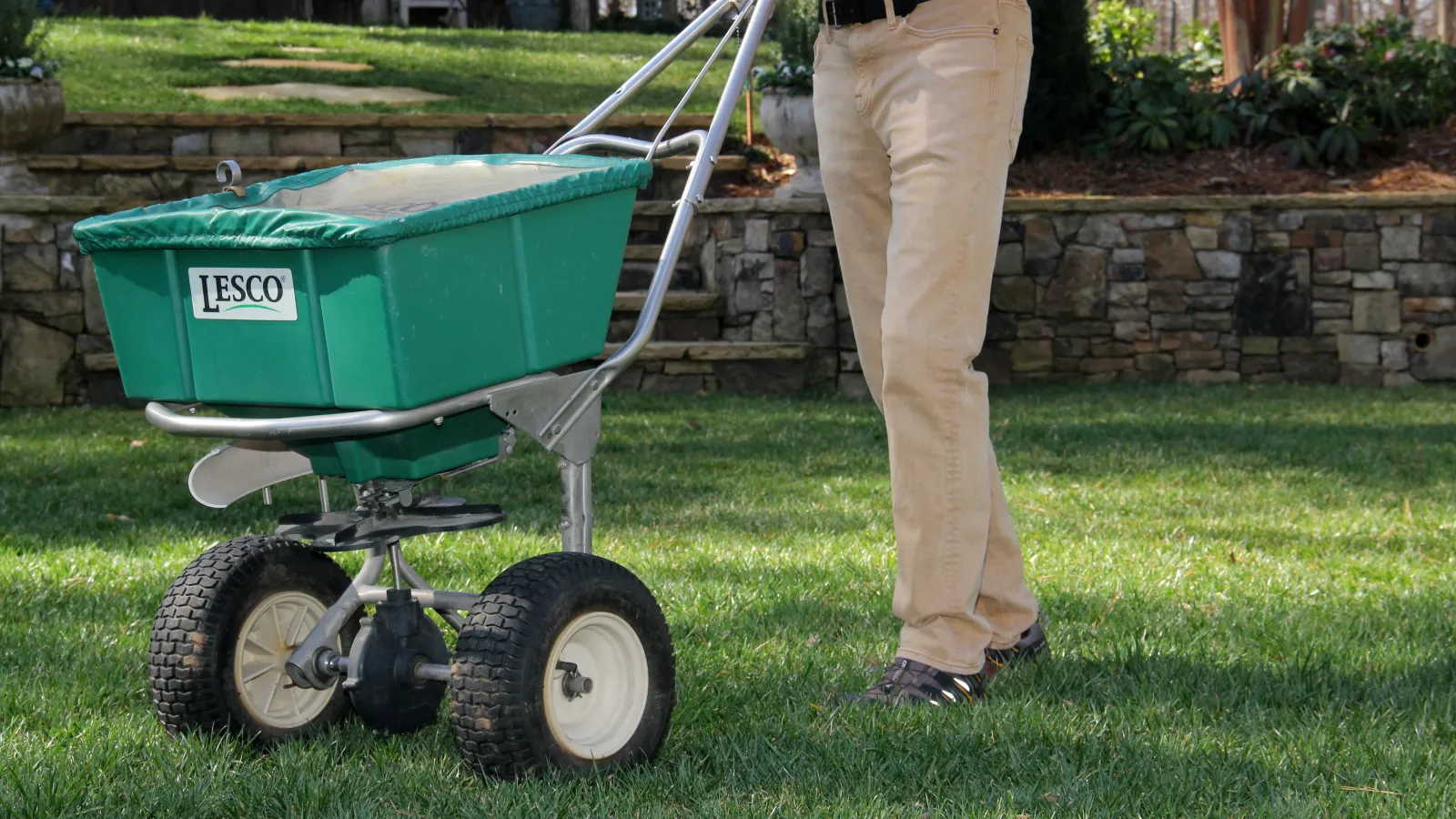
Fertilization
A Bermuda grass lawn is a high user of nitrogen. That's why we provide plenty of high-quality nitrogen as well as other nutrients throughout the year that your lawn needs with our Lawn Care Program. But be careful. Fertilizers containing high percentages of nitrogen can "burn" or "streak" your lawn when misapplied. We use commercial-grade spreaders calibrated for the products they are using. These fertilizers allow for time released feeding to prevent damaging your lawn and to constantly release nutrients between applications. Additionally, our Route Managers receive ongoing continuing education on the best way to apply these products. Should you choose to do it yourself, we recommend you choose a slow release fertilizer as well. Always read and follow the product label.
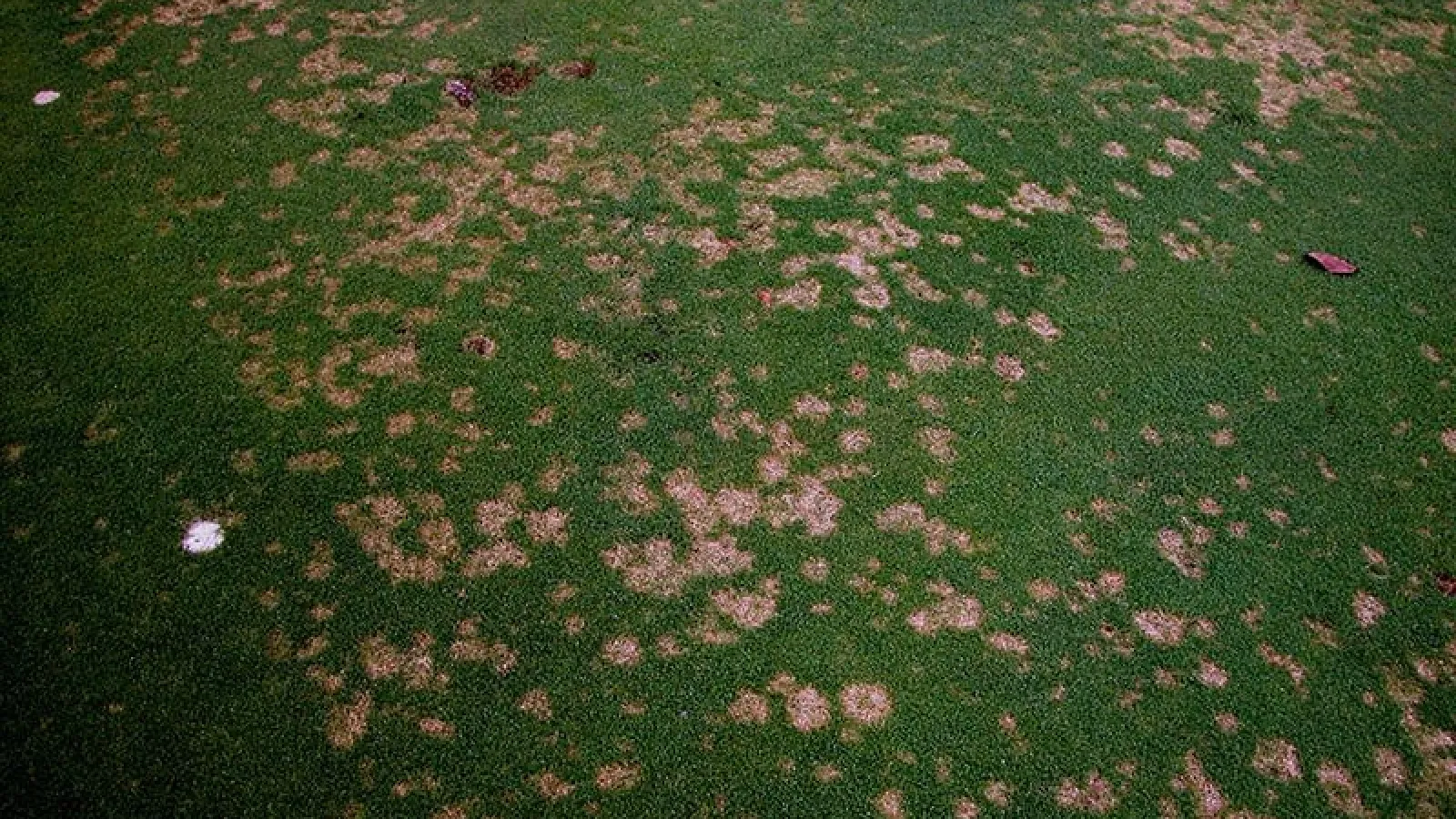
Diseases, Insects and Fungi
Disease and Insects
Compared to other turf grasses used in the Southeast, Bermuda grass is relatively trouble-free. Below are a couple of the most common problems encountered.
Dollar Spot
Dollar Spot is caused by fungi. Symptoms begin as small white or beige circular spots 1 to 2 inches in diameter. Eventually, these spots will grow together and form large, unsightly patches several feet across. The disease is more severe on Bermuda grass lacking nitrogen. Heavy thatch and improper irrigation also promote Dollar Spot. Fortunately, fungicides are rarely needed. Proper nitrogen levels, irrigating in the morning hours, mowing at the right height and controlling thatch will generally correct the problem.
Fall Armyworms
Fall armyworms are the larvae of a small brownish-gray moth. They plague many agricultural crops but prefer turfgrasses including Bermuda. They cause damage by consuming the leaf blade and can cause havoc on your lawn quickly. Hence their name, fall armyworms "march" across your lawn in the thousands, most active at night, eating away your lawn. The key to defeating the destruction from fall armyworms is to spot them early.
Bermuda Grass FAQs
How does Bermuda grass spread?
Bermuda grass spreads on top of the soil by surface roots called stolons, and underground via rhizomes, creating a dense turf. Given the right conditions, this grass spreads quickly and has decent resistance to pests and diseases.
How do I get my grass greener?
Being part of our lawn care program and adding growth regulators is the best way to have a healthy, green, weed-free lawn.
How do I kill weeds in my yard?
Professional lawn care with appropriately timed pre- and post-emergent weed control will prevent future weeds and knock back existing weed. Some weeds can be pulled manually, too
When should I aerate my Bermuda grass?
We recommend core aerating your Bermuda lawn in the spring. Aeration is important because it promotes growth and allows water, nutrients, and oxygen to better reach the grass roots.
Do I need to seed my Bermuda lawn?
No. Bermuda grass grown from seed simply will not match the cultivated variety in your yard. Bermuda spreads aggressively, so with the right amounts of sunlight, water, nutrients and care, bare spots should fill in on their own.
How much sunlight does my Bermuda grass need?
Bermuda lawns love sun! We recommended at least 7 hours a day of full sunlight.
